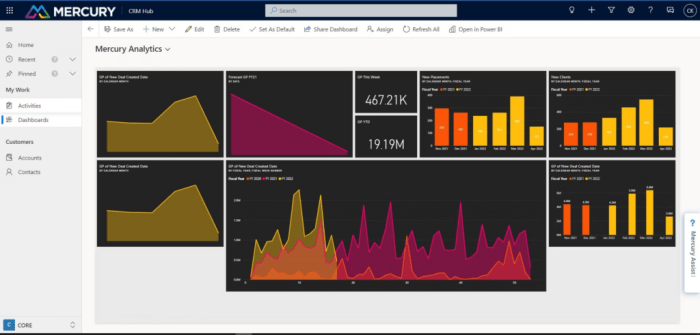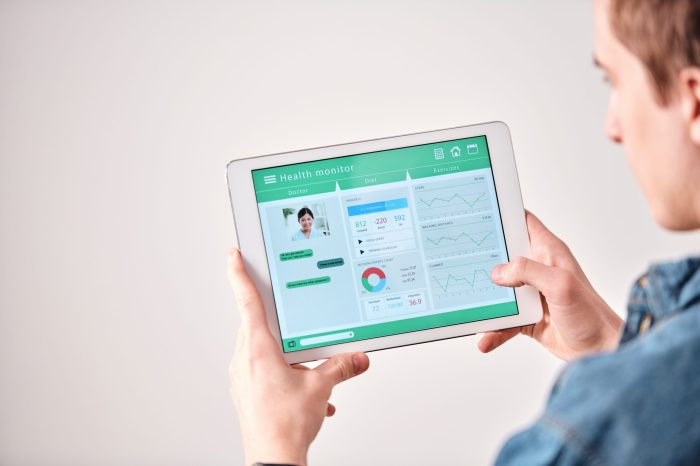The healthcare industry is increasingly reliant on technology to streamline operations, improve patient care, and boost revenue. A crucial component of this technological shift is the implementation of a robust Customer Relationship Management (CRM) system. Choosing the right healthcare CRM software can significantly impact efficiency, patient satisfaction, and overall business success. This detailed guide explores the best healthcare CRM software options available, helping you navigate the selection process and find the perfect fit for your practice or organization.
Understanding Healthcare CRM Software
Healthcare CRM software is specifically designed to manage interactions with patients, referring physicians, and other stakeholders within the healthcare ecosystem. Unlike generic CRM solutions, healthcare CRMs often incorporate features tailored to the unique needs and regulatory requirements of the industry, such as HIPAA compliance, secure data storage, and specialized reporting functionalities. These systems help healthcare providers:
- Improve Patient Engagement: Streamline appointment scheduling, send automated reminders, and facilitate communication through various channels (email, SMS, patient portal).
- Enhance Patient Retention: Track patient interactions, identify at-risk patients, and personalize follow-up care to improve patient loyalty.
- Boost Revenue Cycle Management (RCM): Automate billing processes, manage claims, and reduce administrative overhead.
- Improve Operational Efficiency: Centralize patient data, automate tasks, and improve team collaboration.
- Strengthen Physician Relationships: Manage referrals, track communication, and foster stronger partnerships with referring physicians.
- Maintain HIPAA Compliance: Ensure data security and privacy in accordance with HIPAA regulations.
Key Features to Look for in a Healthcare CRM
When evaluating healthcare CRM software, consider these essential features:
Patient Management
- Centralized Patient Database: A single source of truth for all patient information, including demographics, medical history, insurance details, and appointment history.
- Appointment Scheduling: Online appointment booking, automated reminders, and calendar integration for efficient scheduling.
- Patient Portal: Secure online access for patients to view medical records, request appointments, and communicate with providers.
- Communication Tools: Integrated email, SMS, and phone capabilities for seamless communication with patients.
Practice Management
- Electronic Health Records (EHR) Integration: Seamless integration with existing EHR systems for efficient data exchange.
- Billing and Claims Management: Automated billing, claims processing, and payment tracking to streamline revenue cycle management.
- Reporting and Analytics: Customizable reports and dashboards to track key performance indicators (KPIs) and identify areas for improvement.
- Workflow Automation: Automated tasks such as appointment reminders, follow-up calls, and billing processes to improve efficiency.
Marketing and Sales
- Marketing Automation: Targeted email campaigns, automated marketing workflows, and lead nurturing to attract new patients.
- Referral Management: Track referrals, manage relationships with referring physicians, and improve referral conversion rates.
- Sales Pipeline Management: Track leads, manage the sales process, and improve sales conversion rates.
Top Healthcare CRM Software Options
The market offers a variety of healthcare CRM solutions. Selecting the best one depends on your specific needs and budget. Here are a few leading options:
1. Salesforce Health Cloud
A robust and scalable solution ideal for large healthcare organizations. Offers advanced features such as patient 360 views, care coordination tools, and robust analytics. However, it can be expensive and requires significant implementation effort.
2. Practice Fusion
A popular cloud-based EHR and practice management system with integrated CRM functionalities. Offers a comprehensive suite of tools for managing patients, appointments, and billing. Known for its user-friendly interface and affordability.
3. Kareo
Another cloud-based solution focusing on billing, claims management, and practice management. Integrates well with other healthcare applications and offers robust reporting capabilities. A good choice for smaller practices looking for a streamlined solution.

Source: b-cdn.net
4. athenahealth, Best healthcare crm software
A comprehensive platform offering EHR, practice management, and patient engagement tools. Known for its strong focus on population health management and its ability to handle large volumes of data. Suitable for larger practices and healthcare organizations.
5. NextGen Healthcare
Provides a range of solutions including EHR, practice management, and revenue cycle management. Offers strong reporting and analytics capabilities and is often chosen by large medical groups and hospitals.
Choosing the Right Healthcare CRM: A Step-by-Step Guide: Best Healthcare Crm Software
- Assess your needs: Identify your key requirements and pain points. What are your biggest challenges? What features are essential?
- Set your budget: Determine how much you are willing to spend on software, implementation, and ongoing maintenance.
- Research different vendors: Explore various options and compare their features, pricing, and customer reviews.
- Request demos: Schedule demos with shortlisted vendors to see the software in action and ask questions.
- Read reviews and testimonials: Gather feedback from other healthcare providers who have used the software.
- Consider integration capabilities: Ensure the CRM integrates seamlessly with your existing EHR and other healthcare applications.
- Check for HIPAA compliance: Verify that the software meets HIPAA regulations for data security and privacy.
- Evaluate customer support: Assess the vendor’s customer support services and responsiveness.
Frequently Asked Questions (FAQ)
- Q: What is the cost of healthcare CRM software? A: The cost varies greatly depending on the vendor, features, and number of users. Expect to pay anywhere from a few hundred dollars per month to thousands of dollars per year.
- Q: Is healthcare CRM software HIPAA compliant? A: Reputable healthcare CRM vendors prioritize HIPAA compliance. However, it’s crucial to verify compliance before selecting a solution.
- Q: How long does it take to implement a healthcare CRM? A: Implementation time varies depending on the complexity of the software and the size of your organization. It can range from a few weeks to several months.
- Q: What are the benefits of using a healthcare CRM? A: Benefits include improved patient engagement, enhanced operational efficiency, streamlined billing processes, and increased revenue.
- Q: Can a healthcare CRM integrate with my existing EHR system? A: Many healthcare CRMs offer integration with popular EHR systems. However, it’s essential to confirm compatibility before purchasing.
Conclusion
Implementing the right healthcare CRM software is a strategic investment that can significantly improve patient care, operational efficiency, and financial performance. By carefully considering your needs, researching available options, and following a structured selection process, you can find a solution that empowers your practice or organization to thrive in today’s competitive healthcare landscape.
Call to Action
Ready to transform your healthcare practice with a powerful CRM? Contact us today for a free consultation and let us help you find the perfect solution for your needs!
FAQ Corner
What are the key features to look for in healthcare CRM software?
Key features include secure data storage, HIPAA compliance, appointment scheduling, patient communication tools, reporting and analytics dashboards, and integration with existing EHR/EMR systems.

Source: empeek.com
How much does healthcare CRM software typically cost?
Pricing varies widely depending on features, scalability, and vendor. Expect a range from monthly subscription fees for smaller practices to more substantial costs for larger organizations with extensive needs.
Is my data secure with healthcare CRM software?
Reputable healthcare CRM vendors prioritize data security and comply with regulations like HIPAA. Look for systems with robust security measures, including encryption and access controls.
How can I integrate my existing EHR/EMR system with a CRM?
Many CRMs offer integration capabilities with popular EHR/EMR systems. Check for compatibility with your specific system before selecting a CRM solution. Some may require third-party integration tools.
